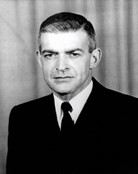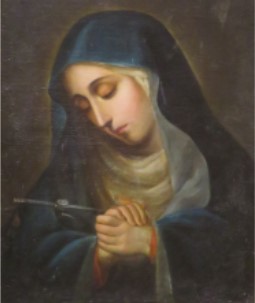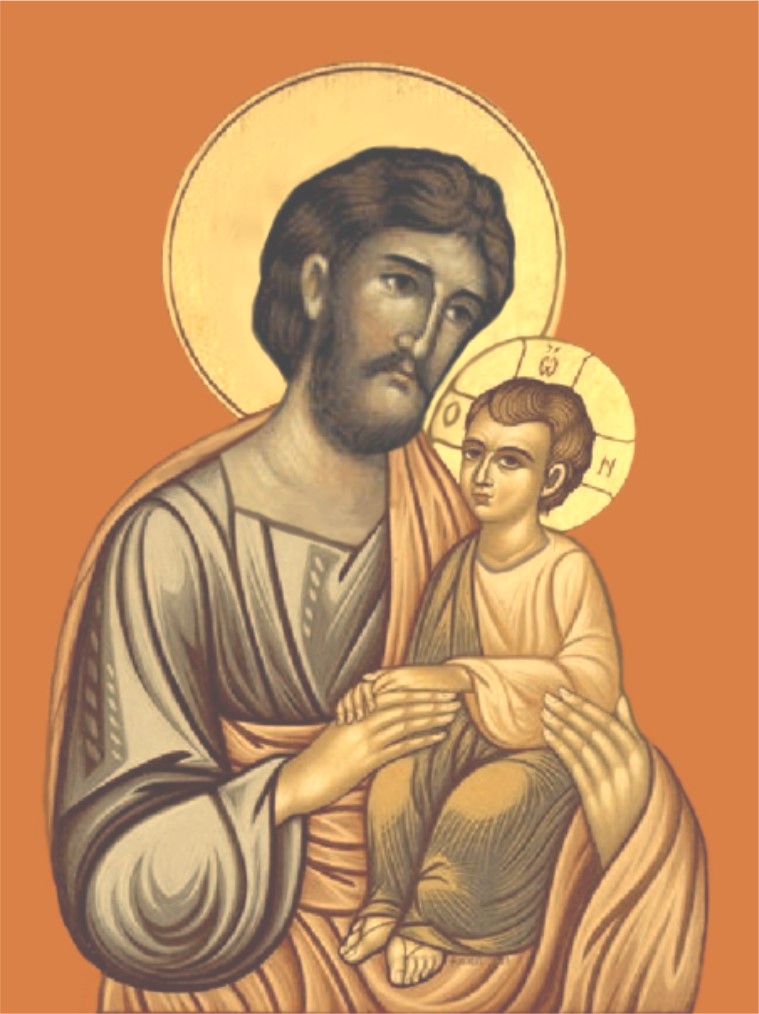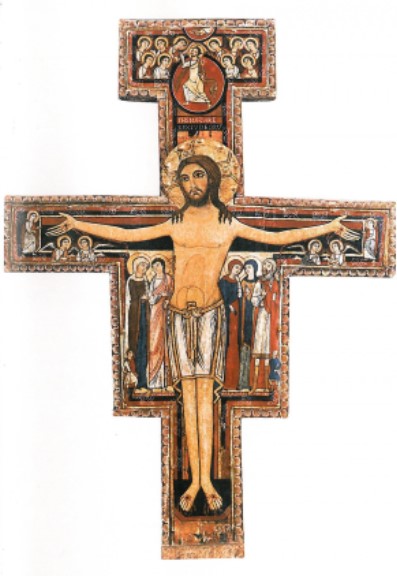July 12 – Fifteenth Sunday in Ordinary Time
We Groan within Ourselves as We Await the Redemption of Our Bodies
The second reading this week continues with St. Paul’s Letter to the Romans. All creation and we ourselves, the children of God, groan and sigh as we make our way through this life of suffering. Due to the sin of Adam, and our sins, we find life in this world has much suffering. The sicknesses of the body, our weaknesses and fragility, the troubles in society and within our own families, all of these have us groaning as we await redemption and deliverance. Very often we feel the groaning deep within as we toil and struggle through the days of our lives. All of creation in fact groans as it awaits the time of its perfection to be found in Christ.
St. Paul also reminds us that we have the firstfruits of the Spirit. A firstfruit is the choicest variety in a garden. In the entire creation, those who have received the Holy Spirit in baptism and strengthening in confirmation are the choicest fruits of God’s creation. If we are hearing St. Paul’s Letter being read at Mass, then we are experiencing the effects of being chosen by God and undergoing the process of ripening so as to bear the fruits of the Spirit in our lives. Joy, peace, patience, kindness, goodness, faithfulness, gentleness, self-control, chastity, charity, forbearance, modesty, these are the fruits of the Spirit. When the Word of God penetrates us and we respond with a life of prayer, sacraments and service, the Spirit is emerging within us. This emergence of the Spirit manifests itself often as groaning, but it is a holy groaning of hope. The corruption that consumes all material things, including our bodies, is overcome by the Spirit deposited within us. St. Paul urges us to live according to that Spirit and to live a life of thanksgiving and hope, because the corruption that appears all around us, and the groaning we often feel, do not overcome the Spirit. The resurrection of Jesus in the flesh is the promise that God indeed delivers and that His Spirit overcomes all corruption. It is that resurrected and glorified flesh that we receive at each Holy Communion, which is the ultimate sign in this life that we are the firstfruits of the Spirit.
July 5 – Fourteenth Sunday in Ordinary Time
St. Paul’s written masterpiece is really his letter to the Romans. It is the fruit of his many years of reflection and study of the Word of God, his encounter with Jesus Christ, his toil in the vineyard of the Lord and his many sufferings for Christ. In chapter 8 Paul tells us that to live according to the flesh makes us debtors and leads to death. By flesh Paul means the sinful, concupiscence of the body. We are not integrated fully between soul and body. How many times has any one of us done the exact opposite of what we knew we should do but couldn’t because we followed the movements of the flesh? Before Christ, all there was – St. Paul tells us – was The Law. The Law told the people of God what to do but it did not provide the means to do it. That is why sin prevailed. But now, St. Paul continues, with the coming of Christ and his victory in the resurrection, we have the Spirit of God! The Law may tell us what to do but only the Spirit of God can give us the means to do it. That is essentially the message Paul provides in Romans. It is Good News!
How does one live by the Spirit instead of the flesh? It still doesn’t seem very easy to do. First, we must start with the beginning of chapter 8. Although it is not included in this Sunday’s portion of Romans 8, Paul begins that chapter with these words: “Hence, now there is no condemnation for those who are in Christ Jesus.” We must always begin every meditation about our Catholic Faith with that understanding. No matter how difficult things may be; no matter how far from living by the Spirit I am, there is no condemnation if I am in Christ by baptism and the sacraments. And this is ultimately what is means to live by the Spirit of God. It is true that we fail to overcome the cravings of the flesh often, but if we are immersing ourselves into Christ by a life of prayer and sacraments and service, we are in Christ and we are not condemned. Still, St. Paul want us to go beyond the minimum and find true holiness of life. He reminds us that the source of holiness is not our hard work. The source is the Spirit of God.
Do you have a relationship with the Holy Spirit? Do you pray and ask for the Spirit to stir up his graces within you? The Catholic spiritual life is not primarily about morality, although that is certainly part of it. The Catholic Way, the Way of Jesus, is a life lived in love and service of God and neighbor. First, we seek intimate relationship with God in Christ through the Holy Spirit. Then, energized by that Spirit and empowered by Jesus, we seek a life of love and service of others. We may struggle every single day to live this out, but Paul reminds us in the Letter to the Romans that the struggle happening within us is the Spirit winning over and integrating our flesh. In times when we may be discouraged that the flesh seems to be winning the day it is then that we must remember, “the one who raised Christ from the dead will give life to your mortal bodies also, through his Spirit that dwells in you” (Rom. 8:11).
May 31 — Pentecost
The Descent of the Holy Spirit
In his First Letter to the Corinthians, St. Paul writes that no one can say, “‘Jesus is Lord,’ except by the Holy Spirit.” We know that we receive the presence and gifts of the Holy Spirit at Baptism and have them strengthened in Confirmation, but we know that presence and those gifts are being engaged by us when we live under the Lordship of Jesus Christ; for anyone who says and believes that “Jesus is Lord” is doing so by the grace of the Holy Spirit.
There are two general ways that we engage with the world: observation and declaration. An observation is simply that we see things happening and acknowledge that they are there. It can be quite a passive thing to simply observe something. I can see that the sun is shining brightly in the sky and leave it at that. That is observation. To make an observation that Jesus is Lord is simply to state that it says so in the bible and the Church believes it but it is all quite “ho-hum” or “no big deal” to me. A declaration on the other hand is something entirely different. To declare is to announce that one is completely engaged. Here is a declaration: “And for the support of this Declaration, with a firm reliance on the protection of Divine Providence, we mutually pledge to each other our Lives, our Fortunes, and our sacred Honor.” The men who signed the Declaration of Independence were not making an observation. They were firmly engaged in what they were doing.
St. Paul reminds us that the Holy Spirit is given to us that we may declare that Jesus is Lord. In so doing the Spirit lavishes upon us all the gifts necessary to be fully engaged as disciples under the Lordship of Jesus Christ.
May 24 — Seventh Sunday of Easter
Memorial Day

Remembering Priest Chaplains to the Military

Fr. Lawrence Lynch served in the Army and is a winner of a Silver Star. He died on Okinawa in 1945 while giving communion to a soldier.

Fr. Vincent Capodanno, Chaplain to Marines died in Vietnam while assisting a soldier under fire in 1967. He won a Medal of Honor winner in 1969.

Fr. Emil Kapaun of the Army died as a POW during the Korean War and is a Medal of Honor winner for heroically serving his fellow POWs in Korea.
Memorial Day Prayer
As our nation pauses today to remember those in the military who have given their lives for freedoms we enjoy, we pray you would have us all look to you for strength, comfort and guidance. Be with all who serve in our Armed Forces. Bless them and their families.
Grant your loving protection. Let peace prevail among all the nations, O God. Especially let your mercy rest upon our land, even as we acknowledge with thanksgiving your past goodness on this country.
If it is your will, preserve the lives of the men and women in uniform as they defend our citizenry. Take into your bosom all those men and women who given their lives in defense of freedom and grant them the peace they fought for.
Most of all, we pray that you would turn the hearts of all – military and civilian – to your holy Word where we find the true peace for our sinful souls that surpasses all understanding. Keep us repentant of sin. Move us to know, take hold and treasure your saving grace.
In this peace and hope for eternity, we pray. Amen.
The Lanterian Home
May 17 — Sixth Sunday of Easter: Ascension Thursday
May 21 is the Solemnity of the Ascension of the Lord. Forty days after the Lord’s resurrection he returned to the Father to sit at his right hand and intercede for us. It is customary to eat some kind of fowl for dinner as a way of celebrating that Jesus “flew” to heaven.
Prayer for Ascension Thursday
Dear Lord Jesus Christ, right before your Ascension into heaven you told your apostles to be His witnesses to the ends of the earth upon receiving the Holy Spirit. May I be similarly inspired to spread your Gospel message in word and deed, according to your will for me. And may I do so prudently and joyfully, with your help, your guidance, and your grace! And remembering this glorious event, help me to seek what is above, Heaven, where you are seated at the right hand of God the Father!
May 10 — Fifth Sunday of Easter: A Prayer for Mothers
Good and Gentle God,
we pray in gratitude for our mothers and for all the women of theory who have joined with you in the wonder of bringing forth new life. You who became human through a woman, grant to all mothers the courage they need to face the uncertain future that life with children always brings.
Give them the strength to live and to be loved in return, not perfectly, but humanly.
Give them the faithful support of husband, family and friends as they care for the physical and spiritual growth of their children.
Give them joy and delight in their children to sustain them through the trials of motherhood. Most of all, give them the wisdom to turn to you for help when they need it most. Amen.
May 3 — Fourth Sunday of Easter: Consecration to Mary
Archbishop José H. Gomez of Los Angeles and president of the USCCB announced that the U.S. bishops in conjunction with the Canadian Conference of Catholic Bishops is renewing the consecrations of the two nations to the care of our Blessed Mother.
Through a collective dedication or entrustment of a nation to Mary, an act of consecration is meant to be a reminder to the faithful of the Blessed Mother’s witness to the Gospel and to ask for her effective intercession before her Son on behalf of those in need.
The consecration took place on May 1. This prayer reaffirms and renews previous Marian entrustments, and it unites us in solidarity with our Holy Father, who recently established the Memorial of the Blessed Virgin Mary, Mother of the Church, as a source of protection and strength.
April 19 — Sunday of Divine Mercy: From the Diary of St. Maria Faustina Kowalska
Great love can change small things into great ones, and it is only love which lends value to our actions. And the purer our love becomes, the less there will be within us for the flames of suffering to feed upon, and the suffering will cease to be a suffering for us; it will become a delight! By the grace of God, I have received such a disposition of heart that I am never so happy as when I suffer for Jesus, whom I love with every beat of my heart.” (No. 303)
“When I see that the burden is beyond my strength, I do not consider or analyze it or probe into it, but I run like a child to the Heart of Jesus and say only one word to Him: “You can do all things.” And then I keep silent, because I know that Jesus Himself will intervene in the matter, and as for me, instead of tormenting myself, I use that time to love Him.” (No. 1033)
“The Lord said to me, ‘The loss of each soul plunges Me into mortal sadness. You always console Me when you pray for sinners. The prayer most pleasing to Me is prayer for the conversion of sinners. Know, My daughter, that this prayer is always heard and answered.’” (No. 1397)
“All grace flows from mercy, and the last hour abounds with mercy for us. Let no one doubt concerning the goodness of God; even if a person’s sins were as dark as night, God’s mercy is stronger than our misery. One thing alone is necessary; that the sinner set ajar the door of his heart, be it ever so little, to let in a ray of God’s merciful grace, and then God will do the rest.” (No. 1507)
“When pain overwhelms my soul, and the horizon darkens like night, and the heart is torn with the torment of suffering, Jesus Crucified, You are my strength.”
Have your intentions prayed for in a novena of Masses beginning on Divine Mercy Sunday.
April 12 — Easter Sunday: Blessing of the Meal for the Easter Feast
Leader: Christ is risen. Alleluia.
And all reply: He is risen indeed. Alleluia.
1721 One of those present a text of sacred Scripture: Brothers and sisters, listen to the words of the book of Deuteronomy:
16:1-8 The passover of the Lord. Observe the month of Abib by keeping the Passover of the LORD, your God, since it was in the month of Abib
that he brought you by night out of Egypt. You shall offer the Passover sacrifice from your flock or your herd to the LORD, your God, in the place which he. chooses as the dwelling place of his name. You shall not eat leavened bread with it. For seven days you shall eat with it only unleavened bread, the bread of affliction, that you may remember as long as you live the day of your departure from the land of Egypt; for in frightened haste you left the land of Egypt. Nothing leavened may be found in all your territory for seven days, and none of the meat which you sacrificed on the evening of the first day shall be kept overnight for the next day.
You may not sacrifice the Passover in any of the communities which the LORD, your God, gives you; only at the place which he chooses as the dwelling place of his name, and in the evening at sunset, on the anniversary of your departure from Egypt, shall you sacrifice the Passover. You shall cook and eat it at the place the LORD, your God, chooses; then in the morning you may return to your tents. For six days you shall eat unleavened bread, and on the seventh there shall be a solemn meeting in honor of the LORD, your God; on that day you shall not do any sort of work.
Leader: God of glory, the eyes of all turn to you as we celebrate Christ’s victory over sin and death.
Bless us and this food of our first Easter meal. May we who gather at the Lord’s table continue to celebrate the joy of his resurrection and be admitted finally to his heavenly banquet.
Grant this through Christ our Lord.
All reply: Amen.
Prayer Source: Book of Blessings by Prepared by International Commission on English in the Liturgy A Joint Commission of Catholic Bishops’ Conferences, The Liturgical Press, Collegeville, Minnesota, 1989
April 5 — Palm Sunday of the Lord’s Passion: The Year of the Eucharist: April 9, 2020 – June 3, 2021
Friends,
A recent Pew Study entitled “What Americans Know About Religion” reported that only 31% of Catholics believe that the bread and the wine consecrated during the Mass actually become the body and blood of Jesus, and that only half of Catholics know of the Church’s teaching concerning the Real Presence of Jesus in the Eucharist.
In order to help people gain a better understanding of the Eucharist, on Holy Thursday 2020, the Archdiocese of Boston will begin a Year of the Eucharist. It is my hope and prayer that through this spiritual initiative we can invite and encourage our brothers and sisters to find the consolation of the Lord through participation in the celebration of the Eucharist and in times of prayer before the Blessed Sacrament.
As Catholics, it is in the Eucharist that we learn our identity. At the table of the Lord, Jesus makes a gift of Himself to us because God loves us so much. Just as we discover our identity at the family table, it is in the Eucharist that we discover who we are, why we are here, and what is our mission as disciples of Christ.
In the Year of the Eucharist, we all have the opportunity to renew and strengthen our faith and our closeness to the Lord. If we center ourselves in the Real Presence of Jesus, in His friendship, then everything else will make sense. At the celebration of Mass, Jesus is there, waiting for us, inviting us to the table where He is making a gift of Himself to us so that we may have the strength to make a gift of ourselves to others. That is what human fulfillment is about. It is about love and giving of ourselves on behalf of others. That is the meaning of the Eucharist, it is love taken to the extreme. The more we understand that, the more we will want to be present to the Eucharist and the more the Eucharist will transform us.
Discipleship is not a solo flight. Jesus sent people out two by two, not one by one, and spoke of the importance of “two or three are gathered in my name.” The Eucharist is where we gather as Christ’s family, where we can witness our faith to one another and grow in our capacity to love. The Eucharist gives us the strength to carry out our mission to transform the world, to work for justice, to serve the poor, to bring healing and reconciliation. But we can’t do these things unless we have the strength that comes from the intimate contact with God’s love that is given to us in the Eucharist.
God created us and entered into creation in Jesus Christ so we could be close to Him, hear Him, know and love Him. The sacraments not only touch our lives, they mold our very being, and the Eucharist is the center of our sacramental life. That is why I am a Catholic. That is why I am a priest. Without the Eucharist, I would ask myself, “Is it worth it?” I know it is worth it, because Christ really is present in the Eucharist. May God bless you all abundantly with this assurance that Jesus will be with us always, even to the end of time. That is Jesus’ promise and He keeps that promise in the gift of the Eucharist
Cardinal Seán O’Malley, OFM Cap.
Archbishop of Boston
March 29 – Fifth Sunday of Lent: Passiontide Devotion
The Seven Sorrows of Mary

O God, come to my assistance; O Lord, make haste to help me. Glory be to the Father, the Son, and the Holy Spirit, as it was in the beginning, is now, and ever shall be, world without end. Amen.
1. I grieve for you, O Mary most sorrowful, in the affliction of your tender heart at the prophecy of the holy and aged Simeon. Dear Mother, by your heart so afflicted, obtain for me the virtue of humility and the gift of the holy fear of God. Hail Mary…
2. I grieve for you, O Mary most sorrowful, in the anguish of your most affectionate heart during the flight into Egypt and your sojourn there. Dear Mother, by your heart so troubled, obtain for me the virtue of generosity, especially toward the poor, and the gift of piety. Hail Mary…
3. I grieve for you, O Mary most sorrowful, in those anxieties which tried your troubled heart at the loss of your dear Jesus. Dear Mother, by your heart so full of anguish, obtain for me the virtue of chastity and the gift of knowledge. Hail Mary…
4. I grieve for you, O Mary most sorrowful, in the consternation of your heart at meeting Jesus as He carried His Cross. Dear Mother, by your heart so troubled, obtain for me the virtue of patience and the gift of fortitude. Hail Mary…
5. I grieve for you, O Mary most sorrowful, in the martyrdom which your generous heart endured in standing near Jesus in His agony. Dear Mother, by your afflicted heart obtain for me the virtue of temperance and the gift of counsel. Hail Mary…
6. I grieve for you, O Mary most sorrowful, in the wounding of your compassionate heart, when the side of Jesus was struck by the lance before His Body was removed from the Cross. Dear Mother, by your heart thus transfixed, obtain for me the virtue of fraternal charity and the gift of understanding. Hail Mary…
7. I grieve for you, O Mary most sorrowful, for the pangs that wrenched your most loving heart at the burial of Jesus. Dear Mother, by your heart sunk in the bitterness of desolation, obtain for me the virtue of diligence and the gift of wisdom. Hail Mary…
Let Us Pray:
Let intercession be made for us, we beseech You, O Lord Jesus Christ, now and at the hour of our death, before the throne of Your mercy, by the Blessed Virgin Mary, Your Mother, whose most holy soul was pierced by a sword of sorrow in the hour of Your bitter Passion. Through You, O Jesus Christ, Savior of the world, Who with the Father and the Holy Spirit lives and reigns world without end. Amen.
March 15 – Third Sunday of Lent: St. Patrick’s Breastplate Prayer

I arise today
Through a mighty strength, the invocation of the Trinity,
Through belief in the Threeness,
Through confession of the Oneness of the Creator of creation.
I arise today
Through the strength of Christ’s birth with His baptism,
Through the strength of His crucifixion with His burial,
Through the strength of His resurrection with His ascension,
Through the strength of His descent for the judgment of doom.
I arise today
Through the strength of the love of cherubim,
In the obedience of angels, In the service of archangels,
In the hope of resurrection to meet with reward,
In the prayers of patriarchs,
In the predictions of prophets,
In the preaching of apostles,
In the faith of confessors,
In the innocence of holy virgins,
In the deeds of righteous men.
I arise today, through
The strength of heaven,
The light of the sun,
The radiance of the moon,
The splendor of fire,
The speed of lightning,
The swiftness of wind,
The depth of the sea,
The stability of the earth,
The firmness of rock.
I arise today, through
God’s strength to pilot me,
God’s might to uphold me,
God’s wisdom to guide me,
God’s eye to look before me,
God’s ear to hear me,
God’s word to speak for me,
God’s hand to guard me,
God’s shield to protect me,
God’s host to save me
From snares of devils,
From temptation of vices,
From everyone who shall wish me ill, afar and near.
I summon today
All these powers between me and those evils,
Against every cruel and merciless power that may oppose my body and soul,
Against incantations of false prophets,
Against black laws of pagandom,
Against false laws of heretics,
Against craft of idolatry,
Against spells of witches and smiths and wizards,
Against every knowledge that corrupts man’s body and soul;
Christ to shield me today
Against poison, against burning,
Against drowning, against wounding,
So that there may come to me an abundance of reward.
Christ with me,
Christ before me,
Christ behind me,
Christ in me,
Christ beneath me,
Christ above me,
Christ on my right,
Christ on my left,
Christ when I lie down,
Christ when I sit down,
Christ when I arise,
Christ in the heart of every man who thinks of me,
Christ in the mouth of everyone who speaks of me,
Christ in every eye that sees me,
Christ in every ear that hears me.
I arise today
Through a mighty strength, the invocation of the Trinity,
Through belief in the Threeness,
Through confession of the Oneness of the Creator of creation.
March 1 – First Sunday of Lent: March is Dedicated to St. Joseph

Even while the month of March falls completely within the season of Lent,
it is dedicated to the foster father of Jesus, St. Joseph. In the midst of the season of fasting and penance, there are two feasts within March that involve St. Joseph. His own solemnity is on March 19 and the Solemnity of the Annunciation is on March 25. The Gospel of Luke records the annunciation to Mary, while the Gospel of Matthew records the
annunciation to Joseph of the coming birth of Jesus.
The Chaplet of St. Joseph
This chaplet uses the mysteries of the rosary for contemplation.
There are only 4 beads in each mystery of the St. Joseph Chaplet.
On one bead pray two Hail Mary’s while you meditate on one of the mysteries of the rosary. On the three other beads pray the following:
¨ Praised and blessed be Jesus, Mary, and Joseph!
Repeat this sequence for five mysteries of the rosary, then finish with the
following:
¨ O, God, Who had predestined St. Joseph for all eternity
for the service of Thine Eternal Son and His Blessed Mother,
and made him worthy to be the spouse of the Blessed Virgin
and the foster father of Thy Son: we beseech Thee,
through all the services he has rendered to Jesus and Mary on earth,
that Thou wouldst make us worthy of his intercession
and grant us to enjoy the happiness of his company in heaven.
Through Christ our Lord. Amen
February 23 – Seventh Sunday in Ordinary Time: Mardi Gras

February 25 is Mardi Gras, the day before Lent begins. Traditionally in Catholic countries it is a day to feast before the great fast. To ensure that it was not just another day to be secular but maintained a proper sense as a holy feast, it is also a day of devotion to the Holy Face of Jesus. We should remember the beautiful face of Jesus as we celebrate one last time before the penitential season of Lent.
O Jesus, who in Thy bitter Passion didst become “the most abject of men, a man of sorrows”, I venerate Thy Sacred Face whereon there once did shine the beauty and sweetness of the Godhead; but now it has become for me as if it were the face of a leper! Nevertheless, under those disfigured features, I recognize Thy infinite Love and I am consumed with the desire to love Thee and make Thee loved by all men. The tears which well up abundantly in Thy sacred eyes appear to me as so many precious pearls that I love to gather up, in order to purchase the souls of poor sinners by means of their infinite value. O Jesus, whose adorable Face ravishes my heart, I implore Thee to fix deep within me Thy divine image and to set me on fire with Thy Love, that I may be found worthy to come to the contemplation of Thy glorious Face in Heaven. — From St. Therese of the Child Jesus and the Holy Face
February 16 – Sixth Sunday in Ordinary Time: The Passion of the Lord
February is the month dedicated to the Passion of Our Lord. Lent begins on Ash Wednesday which is 10 days away. In consideration of all Our Lord gave for us and suffered for us, now is the time to pray in union with the suffering of Jesus and ask for guidance on what sacrifices we should make for Lent.

Prayer before a Crucifix
Look down upon me, good and gentle Jesus, while before Thy face I humbly kneel, and with burning soul I pray and beseech Thee to fix deep in my heart lively sentiments of faith, hope and charity, true contrition for my sins, and a firm purpose of amendment; while I contemplate with great love and tender pity Thy five wounds, pondering over them within me, having in mind the words which David Thy prophet said of Thee, my Jesus: “They have pierced my hands and my feet; they have numbered all my bones.”
February 9 – Fifth Sunday in Ordinary Time: 28th World Day of the Sick, February 11, 2020
A Message from Pope Francis:
Jesus’ words, “Come to me, all you who labor and are burdened, and I will give you rest” (Mt 11:28) point to the mysterious path of grace that is revealed to the simple and gives new strength to those who are weary and tired… Why does Jesus have these feelings? Because he himself became frail, endured human suffering and received comfort from his Father. Indeed, only those who personally experience suffering are then able to comfort others. There are so many kinds of grave suffering: incurable and chronic diseases, psychological diseases, situations calling for rehabilitation or palliative care, numerous forms of disability, children’s or geriatric diseases… At times human warmth is lacking in our approach to these. What is needed is a personalized approach to the sick, not just of curing but also of caring, in view of an integral human healing. In experiencing illness, individuals not only feel threatened in their physical integrity, but also in the relational, intellectual, affective and spiritual dimensions of their lives. For this reason, in addition to therapy and support, they expect care and attention. In a word, love. At the side of every sick person, there is also a family, which itself suffers and is in need of support and comfort. Dear brothers and sisters who are ill, your sickness makes you in a particular way one of those “who labor and are burdened”, and thus attract the eyes and heart of Jesus. In him, you will find light to brighten your darkest moments and hope to soothe your distress. He urges you: “Come to me.”
January 26 – Sunday of the Word of God: The Apostleship of Prayer
Each month of the year the Holy Father has a prayer intention in which he invites the whole Church to join. The Pope’s Worldwide Prayer network has been entrusted with his own intentions by every pope since Leo XIII in 1890. Each month those who are part of this apostleship of prayer join their hearts and lift up the prayer intentions of the Pope. They also allow the pope’s intentions to become their own as they shape their daily activities in accord with the Church’s mission as expressed by the Holy Father.
The Apostleship of Prayer began with the Jesuits in the mid 19th century. A Jesuit priest began to instruct his novices that they should not have as their daily focus missions far off in India, which is what they typically thought about. The Jesuit priest reminded them that their daily activities, right here and now are what matter most to God. He began to teach them how to find meaning and purpose in their daily tasks through prayer of the heart. Eventually this method of daily prayer and work began to spread throughout the world. It was given official papal approval by Pope Pius IX and in 1890 Pope Leo XIII entrusted the Apostleship of Prayer with his own missionary intentions. To join this network and learn the method of daily prayer and to pray for the Pope’s intentions, please visit the Prayer Network at popesprayerusa.net
January 19 – Second Sunday in Ordinary Time: The Holy Name
The month of January is dedicated to the Holy Name of Jesus. St. Paul tells us that eventually every knee shall bend at the name of Jesus. Holy Name Societies used to flourish in the parishes of the United States. These pious societies of lay people were initiated to promote the devout utterance of the name of God and to combat blasphemy. At the beginning of the New Year of Grace now is a good time to renew a commitment to keep the Third Commandment, which forbids using the Holy Name in vain. The name of God, of Jesus Christ, the Holy Spirit, the Virgin Mary and the saints should always be kept in reverence. The tradition was always to make a slight bow of the head whenever the name of Jesus was uttered.
O sweet Name of Jesus, holy above all names in heaven and on earth, and to which every knee, both of men and of angels in heaven, on earth and in hell bends. You are the way of the just, the glory of the saints, the hope of those in need, the balm of the sick, the love of the devout and the consolation of those that suffer.
O, Jesus be to me a help and a protector so that your Name may be blessed for all times…
by Thomas Kempis
January 12 – The Baptism of the Lord: Baptism Day
Do you know the date of your baptism? It is a very pious tradition to celebrate the anniversary. The new life of Christ, the seed of eternal life is given to us at baptism, and it should be celebrated as every bit as important as our birthdays. The Church even offers a plenary indulgence to anyone who renews their baptismal promises on the anniversary of the day.
It would be good to ensure that we retain the sacramentals of our baptism: the candle and the white garment. Even if these items are lost we can celebrate the baptism anniversaries with a new candle. These anniversaries are something that should certainly be taught to children and become a family tradition.
Baptismal Anniversary Prayer (Adapt the words to your circumstances)
Remember this, Name.
You have been washed in the saving waters of baptism and anointed with holy oil.
Place on your head and in your heart the sign of the cross of salvation.
Trace the sign of the cross on the head and heart.
January 5 – Epiphany of the Lord: King Cake

Traditionally Catholic countries have celebrated Epiphany as the beginning of the festive season of light right up till Ash Wednesday. In some countries new kings were even coronated on January 6 (the traditional day of Epiphany). Twelfth Night is a crowning moment of the Christmas season and is always celebrated on the twelfth day of Christmas, which is the vigil of the Epiphany.
One custom for celebrating the day of the kings is to make the king cake. In honor of the Kingship of Jesus and the three kings who traveled to find him, a special oval cake is made and inside the cake is hidden a bean or pea or small plastic baby. Whoever gets the slice of cake with the prize is the “king” or “queen” of the party and is celebrated as such. The king cake is a reminder that our joy, the joy of celebration and feasting, should be in the Lord and in our communion with each other through him. Gift-giving is a great way to enhance the celebration just as the kings brought gifts to the newborn Jesus.
Click here for the Catholic foodie’s King Cake recipe.
December 29, 2019 – The Holy Family of Jesus, Mary and Joseph: Holy Family Consecration
For Families who Wish to Consecrate Themselves to the Holy Family
O Jesus, our most loving Savior! Thou Who was sent down from Heaven to enlighten the world by Thy teaching and example, and Who didst will to pass the greater part of Thy holy life in Nazareth, subject to Mary and Joseph, and thereby didst hallow the household which was to be the pattern for all Christian families, do Thou in Thy goodness receive our household which this day consecrates itself to Thee. Protect and guard us, strengthen us in Thy holy fear, establish in our hearts the peace and concord of Christian Charity, so that each one of us becoming like to the Divine model of Thy family, may be sharers of eternal joy.
O Mary, most loving Mother of Jesus Christ, our Mother, through thy love and mercy intercede, that Jesus receive this act of Consecration, and pour out upon us His graces and blessings.
O Joseph, most holy Guardian of Jesus and Mary, help us by thy prayers in all our necessities, both of body and soul; that together with the Blessed Virgin Mary and thyself we shall praise and thank Jesus Christ, our Divine Redeemer. Amen.
December 22, 2019 – Fourth Sunday of Advent: Las Posadas
The Advent tradition of the Posadas originated in Spain and spread to Mexico via missionaries. A group of pilgrims imitates the journey of Joseph and Mary from Nazareth to Bethlehem. Pre-arrangement is made by friends and or family to participate. The pilgrim group journeys from one friend’s house to another (as many houses as is arranged ahead of time). Along the way the pilgrims pray the rosary and carry candles. At the first home the pilgrims sing a song asking for the home to welcome them into the Inn. As in the Gospel scene those in the first home sing that they have no room at the Inn. This continues for as many homes as all agree to. At the last home all are finally welcomed and a celebration commences.
The Posadas (a name which means dwelling in English) is not meant to be just another Christmas party but truly an Advent exercise in communion with Jesus, Mary and Joseph.
For songs and more information, click here.
December 15, 2019 – Third Sunday of Advent: The “O” Antiphons
From December 17 through the 23 the Church intensifies its Advent desire for the coming of Christ. Each day the Church sings Mary’s
Magnificat with the “O” antiphons so as to emphasize seven ways Christ fulfilled the Old Testament. It is a great practice to pray the Magnificat with these antiphons each night:
December 17
O Wisdom of our God Most High, guiding creation with
power and love: come to teach us the path of knowledge!
December 18
O Leader of the House of Israel,
giver of the Law to Moses on Sinai: come to rescue us with your mighty power!
December 19
O Root of Jesse’s stem,
sign of God’s love for all his
people: come to save us without delay!
December 20
O Key of David, opening the gates of God’s eternal Kingdom: come and free the prisoners of darkness!
December 21
O Radiant Dawn, splendor of eternal light, sun of justice: come and shine on those who dwell in darkness and in the shadow of death.
December 22
O King of all nations and keystone of the Church: come and save man, whom you formed from the dust!
December 23
O Emmanuel, our King and Giver of Law:
come to save us, Lord our God!
December 8, 2019 – Second Sunday of Advent: Tradition of St. Lucy
St. Lucy is celebrated on December 13. It is known that Lucy was a young woman from Syracuse in Italy and was martyred in the 4th century. The story is that Lucy refused marriage to a pagan man so he betrayed Lucy to the Roman authorities. Eventually Lucy’s eyes were gauged out as a form of torture. Most images of St. Lucy appear with her holding her eyes on a tray.
Lucy means “light.” One very pious family custom has the oldest daughter in a family wear a white dress and a wreathe crown on her head. She walks through the house on St. Lucy’s Day with a candle waking the other members of the family and inviting them to breakfast with St. Lucy sweet rolls.
December 1, 2019 – First Sunday of Advent: St. Andrew’s Day
St. Andrew Day’s is celebrated on November 30 and is traditionally a major solemnity in the Greek Orthodox Church. The Patriarch of Constantinople (considered the Ecumenical Patriarch for all Orthodox Churches) is considered the successor to St. Andrew. Every year the pope sends representatives to Constantinople (now Istanbul) to celebrate with the Greek Orthodox (the Patriarch of Constantinople in turn sends a representative to Rome on the Solemnity of Sts. Peter and Paul). St. Andrew’s Day also helps to designate the beginning of the Season of Advent. The first Sunday of Advent is always the first Sunday after the Feast of St. Andrew in the Latin Rite.
It is fitting that Advent would follow upon St. Andrew’s Day as he was the first Apostle called by Jesus. Andrew, it appears, was a disciple of John the Baptist and was sent by John to follow Jesus. As such, Andrew is a great saint to prepare us for the coming of Jesus. In the Gospel of John Andrew asks Jesus where he is staying and Jesus replies, “Come and see.” This is the spirit of Advent. With St. Andrew let us come and see where Christ is in our lives.

